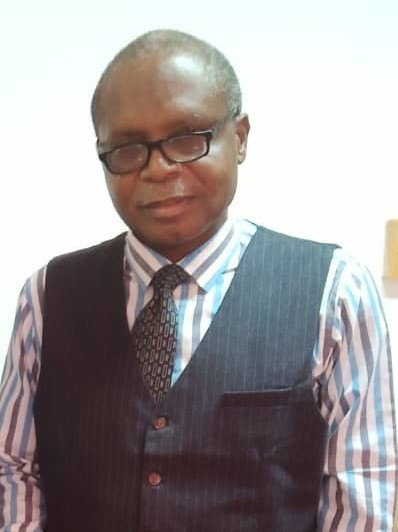
Professor faults Tinubu for pardoning of de-radicalised bandits, killers
A Professor of Political Science and Defence Studies at the Nigerian Defence Academy (NDA), Kaduna, Toba Alabi, has faulted the recent pardon granted by President Bola Ahmed Tinubu to some convicted criminals, particularly de-radicalised Boko Haram insurgents and notorious bandits, describing such clemency as misplaced and potentially demoralising to security forces.
Speaking on Frontline, a programme on Eagle 102.5 FM monitored by The Guardian, Alabi acknowledged that the President acted within his constitutional powers by extending the prerogative of mercy to 175 persons convicted of various offences, including drug-related crimes, fraud, and murder.
He, however, expressed strong reservations about extending such mercy to insurgents and bandits who had killed innocent citizens and later claimed repentance.
“Going by the dictates of the Nigerian Constitution, the President has the right and power to grant pardon based on prerogative of mercy wherever it is necessary. So, within the Constitution, the President has not done anything wrong. But, as we know, no government action in Nigeria escapes controversy — especially when it concerns the executive arm,” he said.
Alabi cautioned that while presidential pardons were constitutional, extending them to violent offenders could have serious security and moral implications.
“There is no way we can say this action aids criminality unless the pardoned persons are unrepentant criminals. But if someone has killed 100 people and simply says he has repented, and you let him walk home to his family that is not right. Such people should either be executed or, at the very least, serve life imprisonment. You can commute their sentence, but not grant an outright pardon,” he warned.
The professor added that the indiscriminate pardon of violent offenders could undermine the morale of soldiers and security operatives still risking their lives to combat insurgency and banditry across the country.
“De-radicalisation is a normal process in any conflict situation, but the type and extent of pardon matter. Setting free people who have committed outrageous crimes sends the wrong signal to the troops on the battlefield and the victims’ families,” he said.
Commenting on the case of Maryam Sanda — convicted of killing her husband, Bilyaminu Bello — Alabi said her pardon may have been influenced by reports of remorse and good behaviour in prison, but he urged the authorities to revisit the case in light of public concerns about justice.
“Yes, if a person has shown remorse and good behaviour after years in prison, the authorities may consider clemency. However, every case must be carefully evaluated to balance compassion with justice,” he added.
Tags:
No tags
Related Posts

FG, GenCos Finalise Implementation Framework for ₦4 Trn Presidential Power Sector Debt Reduction Plan
10/15/2025

Tinubu Condoles With Kenya Over Death of Former PM, Ralia Odinga
10/15/2025

Oyo Govt Pledges Transparency in 2026 Budget Implementation
10/15/2025

The governor has also adopted the World Health Organization’s Mental Health Gap Action Programme (mhGAP) by integrating mental health into general healthcare. The inaugural training cohort, according to Ike, equipped 100 frontline health workers — including doctors, nurses, and pharmacists from 10 General Hospitals — with skills to diagnose and manage common mental health conditions. He explained that the Kaduna Model rests on four pillars: Expanding the Frontiers of Care; A Community-First Approach; Investing in Our Future; and A Paradigm Shift in Justice and From Stigma to Support. The framework, he said, has been formally recognised by the UNODC, positioning Kaduna as a national trailblazer. The state is also set to host the first North West Governors’ Forum on Drug Abuse and Security in collaboration with the UNODC, NDLEA, and other international partners. Under the Community-First pillar, Ike noted that cost and distance remain major barriers to treatment. To address this, the state established 20 community-based Drop-In Centres within existing Primary Health Care facilities. By offering all services free of charge, over 20,000 clients have received care in the first year alone. Governor Sani also commissioned the first Community-Based Treatment and Recovery Centre in May 2024, which has provided residential rehabilitation to 116 individuals. Three additional centres are already being developed to expand capacity. According to Ike, the Kaduna Model also promotes prevention through the Kaduna Children Amplified Prevention System (Kd-CHAMPS) — a framework adapted from the UNODC model to provide resilience-building interventions for children and adolescents, including those out of school. He added that the Unplugged school-based drug prevention programme, implemented in partnership with the Ministry of Education and supported by the MTN Foundation, has trained over 200 teachers and reached more than 17,000 students with life-skills education. Kaduna has also become the first location in Africa to implement the UNODC’s LULU sports-based prevention programme at scale, training 32 community coaches and reaching 960 at-risk adolescents during its pilot phase.
10/15/2025
Loading...